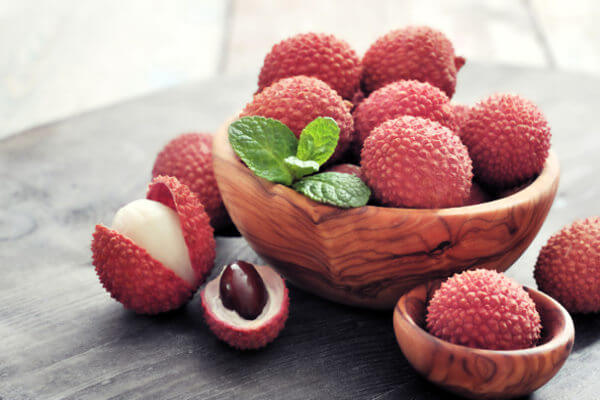
You diligently apply sunscreen, wear a wide-brimmed hat, sunglasses, and protective clothing. You wonder if there is something else you can do for your skin. Yes, there is. Other sun protecting agents can be as close as your fridge or pantry. Yes, you heard that right! There are foods that help protect your skin from the sun.
First, the skinny on sun damage. How does it happen?
When you expose your skin to UV rays, free radicals form. Free radicals are unstable molecules with one or more unpaired electrons. These free radicals cause chain reactions that damage your cells. This results in darkening of your skin, sunburn, sunspots, premature aging of your skin, and skin cancer.
So, What Foods Can Help Protect Your Skin From The Sun?
Citrus Fruits
Citrus fruits such as oranges are rich sources of vitamin C. Vitamin C may help prevent sun damage by donating electrons to free radicals, effectively neutralizing them.
Tip: Eat an orange or two a day while vacationing in the sun. Your skin may thank you!
Green Tea
Green tea contains flavonoids that may protect you against sunburn and reduce your risk of skin cancer. In a 12 week study, participants who drank a drink with green tea flavonoids reduced UV damage by 25 percent at the 12 week mark.
Catechin flavonoids are believed to be the major active ingredients in green tea responsible for its skin protecting effects.
Tip: Have green tea as your hot beverage of choice, or use green tea in your sauces and soups!
Carrots
Carrots are rich in beta carotene and lycopene (precursors to vitamin A) which have been shown to protect the skin from UV radiation.
Research shows that beta carotene and lycopene prevent sunburn by boosting your body’s defense systems against UV damage.
Tip: Juice some carrots, or have carrot soup for lunch.
Strawberries
Strawberries contain many polyphenols (non-nutritional substances that have health benefits) that have powerful antioxidant and anti-inflammatory activities.
In laboratory studies, strawberries have been shown to protect cells from UV A radiation, and decrease sun-related DNA damage. As a result, strawberries may protect your skin from UV-A radiation
Tip: Put strawberries in your morning smoothie, or have strawberries for a nice, healthy snack.
Pomegranates
Pomegranates are rich in ellagic acid, a polyphenol found in several natural sources including fruits, vegetable and nuts. Ellagic acid prevents melanin from forming by acting on the enzyme tyrosinase. Tyrosinase is the major enzyme responsible for making melanin, which is the pigment that gives your skin, hair and eyes their colour. A study found that those who drank pomegranate extract had reduced ultraviolet-induced pigmentation (darkened skin) caused by UV rays than those who did not drink the extract.
Tip: Have a pomegranate for a snack or place one in your juicer to make some fresh pomegranate juice!
Tomatoes
Long-term consumption of tomatoes can prevent you from getting sunburn from UV rays. A study found that participants who consumed tomato paste for 10 weeks had 40 percent less sunburn formation than those who did not consume tomato paste!
Research has also shown that the continued consumption of tomato paste can decrease already existing sunburn. The exact mechanism for tomatoes’ sun-protecting effects is not known. However, lycopene found in tomatoes may be one of the key agents. Lycopene is known to scavenge free radicals, thus reducing sun damage.
Tip: Next time you have a sunburn, consume tomato sauces on a regular basis. It may help clear up your sunburn!
Red Peppers
Lab studies show that capsanthin and capsorubin, which are carotenoids (vitamin A precursors) only produced by red peppers protect human skin cells from DNA damage caused by UVB rays.
Tip: Add some red peppers to your salads or have a stuffed red pepper for supper!
Salmon
Salmon is a rich source of omega 3. Evidence shows that omega 3s protect your skin from UV rays. They do so by reducing sun-induced inflammation of your skin.
Salmon is also an excellent source of selenium. Selenium is a mineral that acts as a component of various proteins such as hydroperoxide glutathionine peroxidase (PHGPx) and thioredoxin reductase (TDR). PHGPx and TDR are antioxidant enzymes which protect your skin from free radicals. TDR may also protect against UVB-induced damage.
Tip: Serve salmon twice a week as a main course.
Flaxseed
Flaxseed is the best source of omega 3 for vegetarians, which protects your skin from UV rays. Flaxseed comes in various forms such as whole flaxseed, ground flaxseed, and flaxseed oil. As a result, it is very easy to incorporate flaxseed into your diet.
Tip: Add ground flaxseed to your smoothies or baked goods.
Watermelon
Watermelon is a rich source of lycopene. A study found that participants who drank watermelon juice increased the concentration lycopene and beta carotene in the blood. Lycopene is known to scavenge free radicals, thus reducing sun damage.
Tip: Feeling thirsty? Grab some watermelon!
Spinach
Spinach is a rich source of beta carotene. Beta carotene protects the skin from the sun and is believed to stop free radical reactions caused by exposing your skin to UV rays.
Tip: Have a nice leafy spinach salad.